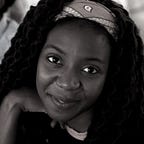It’s Okay Not To Have An Opinion About Everything
As a kid I loved to learn about different things and was quite knowledgeable within my friend group. Even when it came to words and their meanings, I used to get asked a lot of questions about them. I remember one day I said a word, and someone asked me if I meant to say something else instead, but I said no and even gave a definition for the word I used. In fact, I had mispronounced a word and when someone offered the right one, instead of me to admit my mistake and move on, I decided to lie. I couldn’t risk my reputation as being the go-to walking dictionary and thesaurus. I don’t remember the word, but I remember the embarrassment I felt from within. Why couldn’t I have been honest. I’m allowed to not know everything, right?
Over the years, this arrogance persisted. When I moved to Canada, I enjoyed having conversations with individuals and sometimes we would veer into a topic I knew little to nothing about, or just didn’t care about. Instead of telling my conversation partner the truth, I would formulate an opinion based on my own personal feelings of similar topics and/or the few things the person had said. After the conversation ended, I would go home feeling like a fraud and thinking the person realised how full of crap I was. I didn’t like this feel, yet, I found myself doing it often.
Later on, I decided the best way to overcome this was by learning more things about many things. It was an exhausting process, but I finally had more substance in my conversations. I remember one specific conversation where the other person complimented the fact that I knew so much about the topic we were discussing. That was actually true because a week prior, I had immersed myself in that topic and coincidentally had a conversation about it soon after. Although I now had so much more to say, I still wasn’t feeling good about my conversations afterwards. I would still go back home feeling like an intellectual fraud.
It took some time for me to realise that I was only learning new pieces of information, not necessarily new things or new ways of thinking. I had a complete lack of empathy and respect for the information I was gaining. Basically, I never really processed the information. I was just a hard drive collecting data without the ability to sort them and make new meanings from them.
After I realised that, it was a game changer for me. I began to focus on a few topics at a time and spend weeks and/or months ruminating over what I had just learnt before I started to form an opinion. Sometimes I wouldn’t even form an opinion because I could tell that I still did not know enough about the topic for me to form one, or I could tell that I had not yet developed enough empathy in that area to really form a fair assessment of the topic, while still being true to my own beliefs and values. Eventually, I also realised that it wasn’t everything I had to know about. I guess I had FOMO on conversations if I didn’t know about everything. I wanted people to have a good experience when talking to me, so I had to make sure I met their needs, no matter the topic — from history to pop culture.
As I am now, I’m more aware of my own interests and things I deem important enough to know about so that I can spread the message to others or further develop my thoughts on said topic. If someone brings up a topic I know nothing about, I’m honest enough to admit it and not feel inadequate about it. I let the person take the lead and educate me. If I want to, I can then proceed to learn more about it, or I don’t. I think that’s also part of growing up, finding your own voice, being secure in your self and admitting what you don’t know.
All in all, the experience has taught me to be humble in many areas of my life and more aware of the power of being a good listener and choosing my words carefully.
